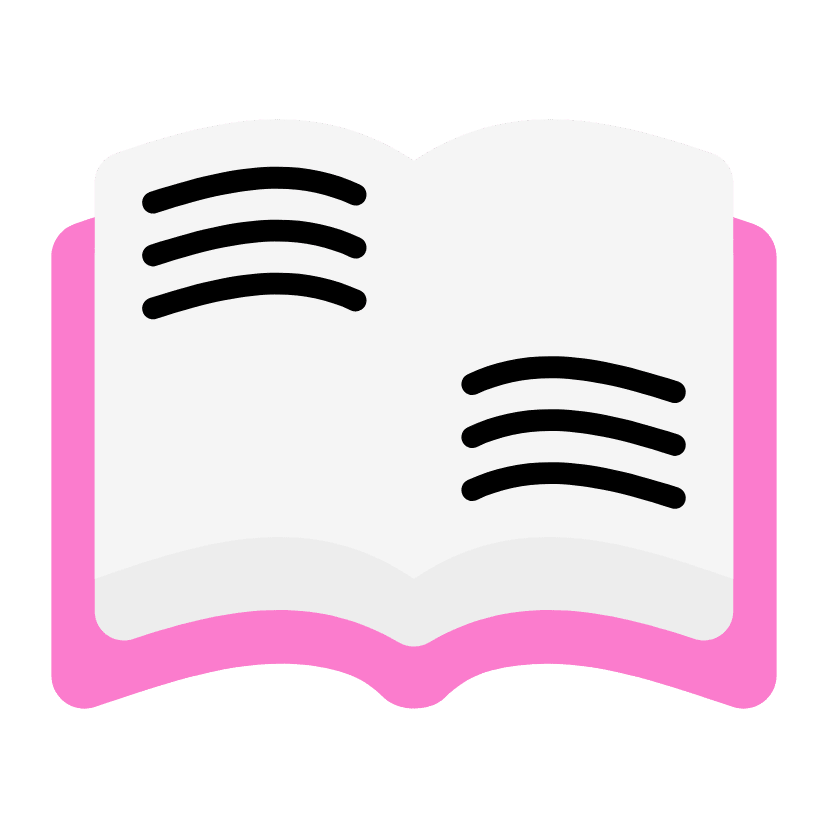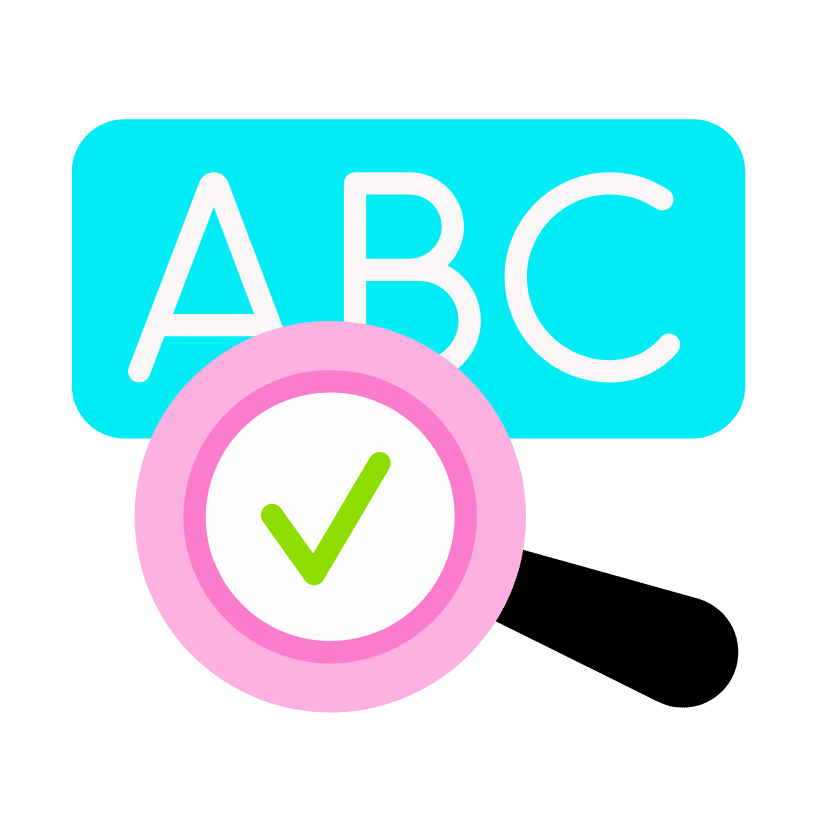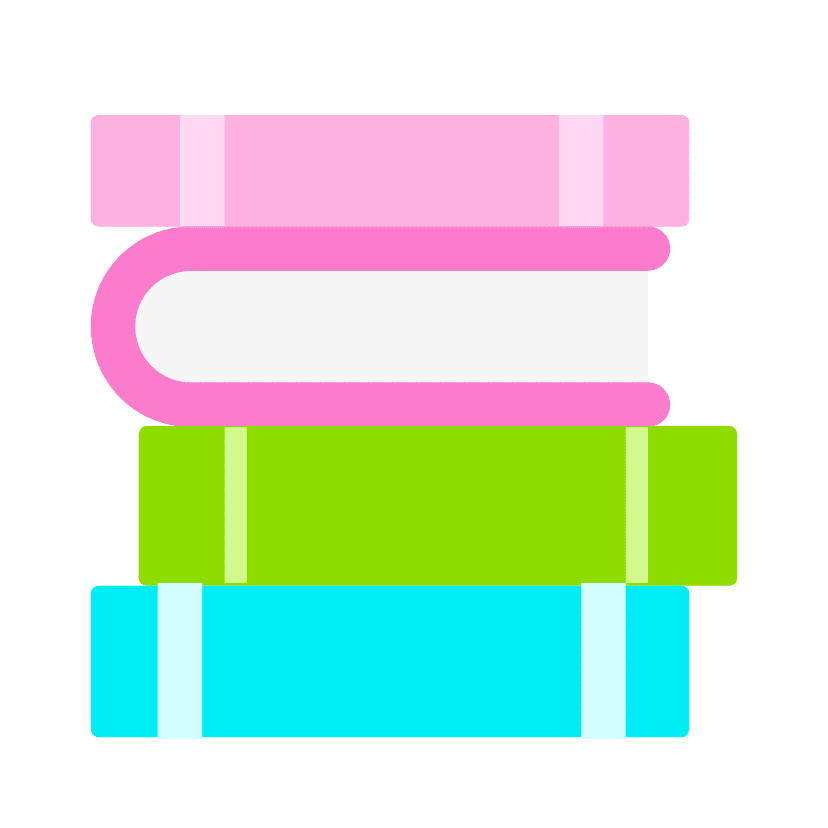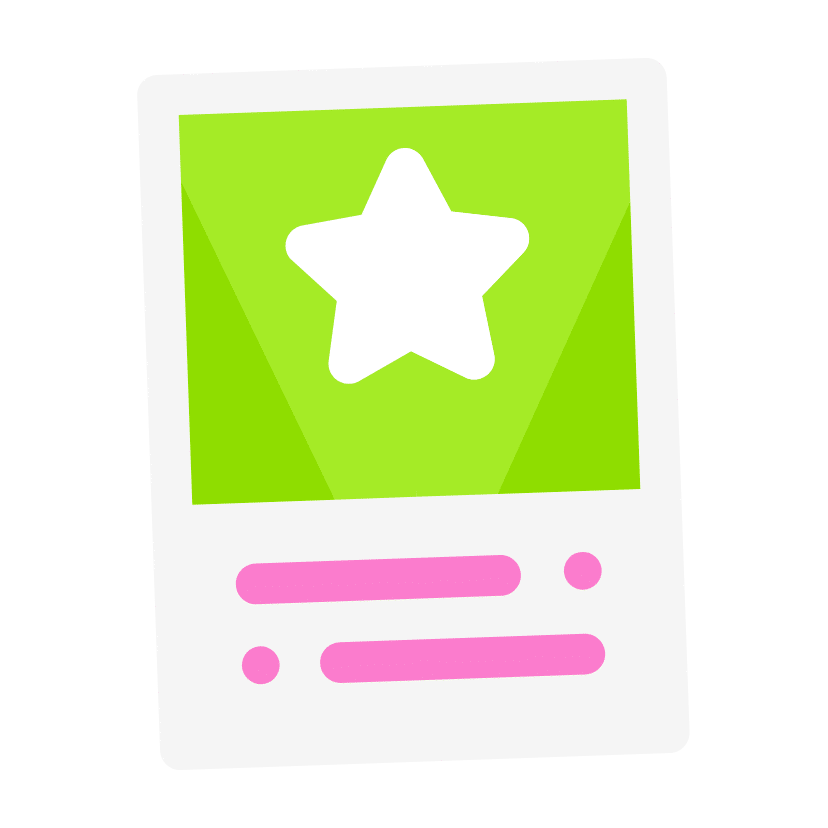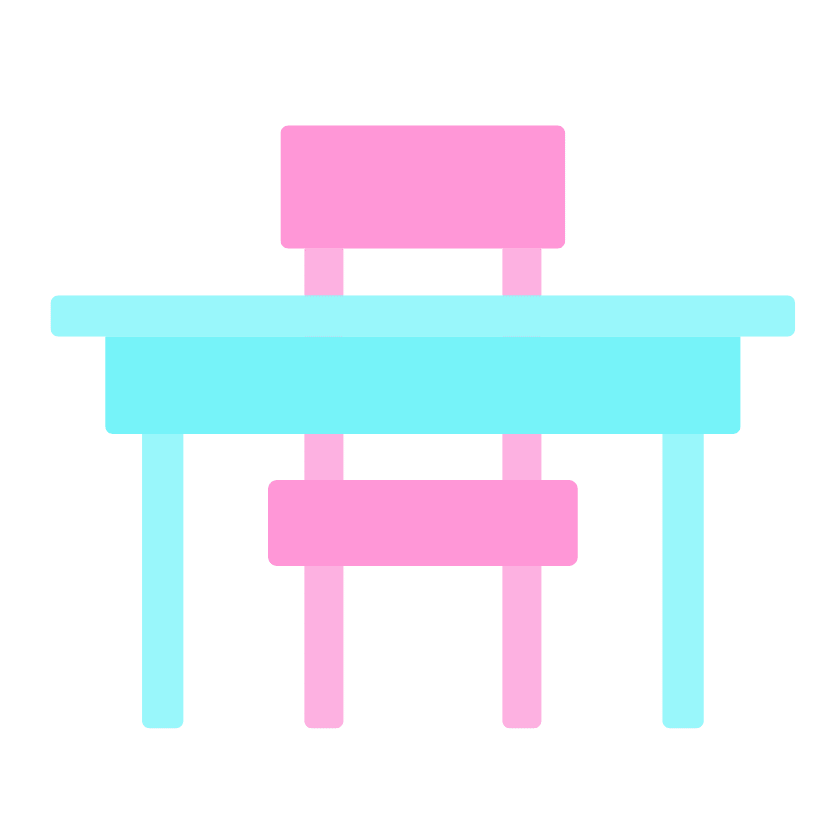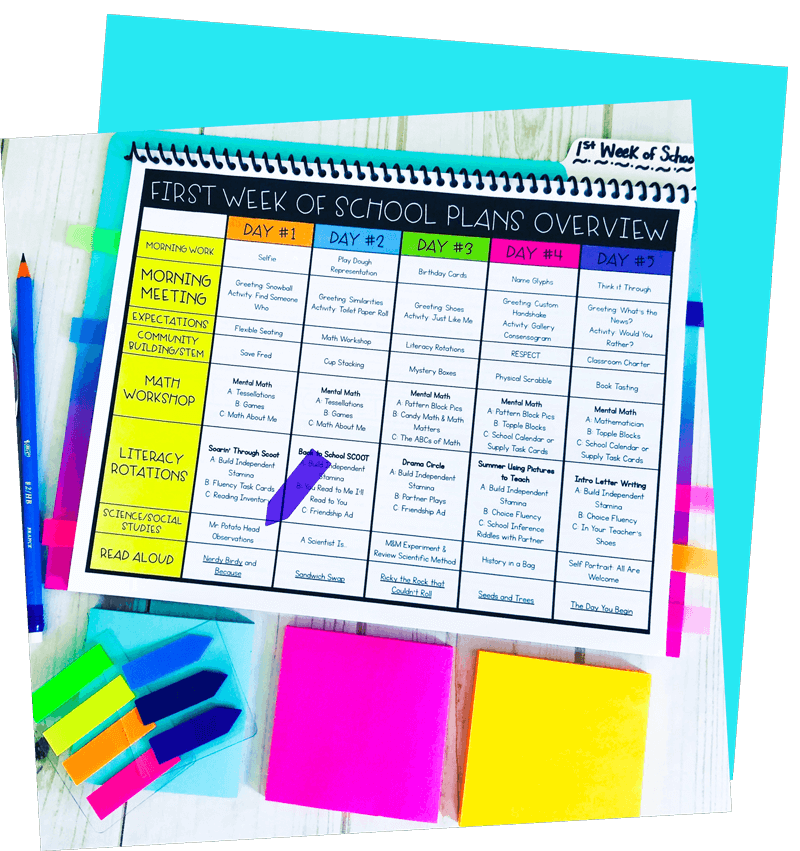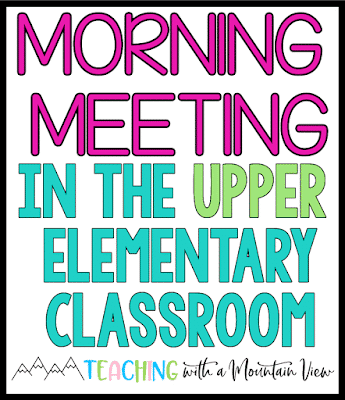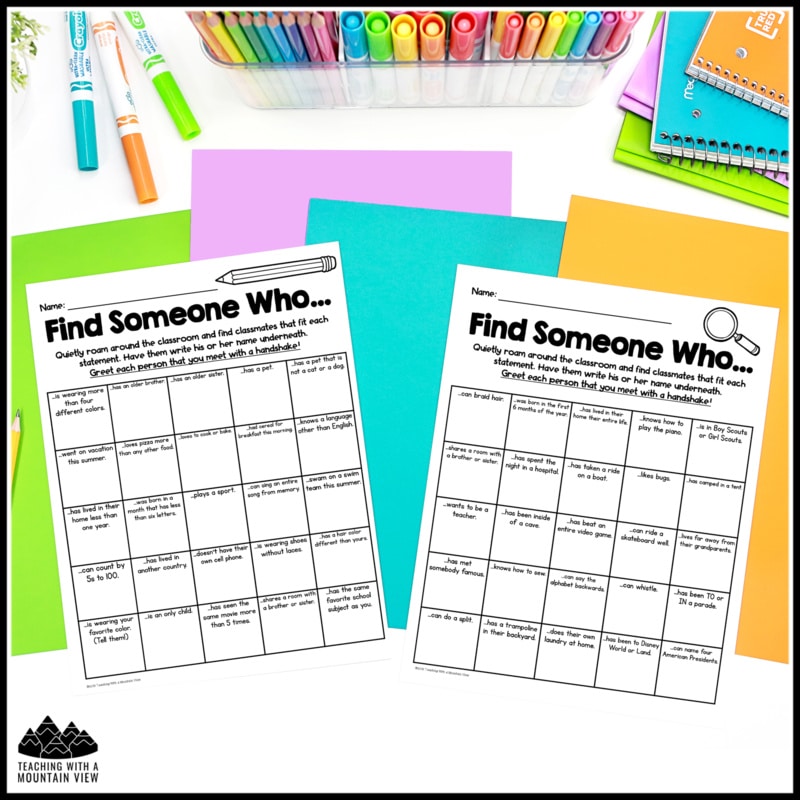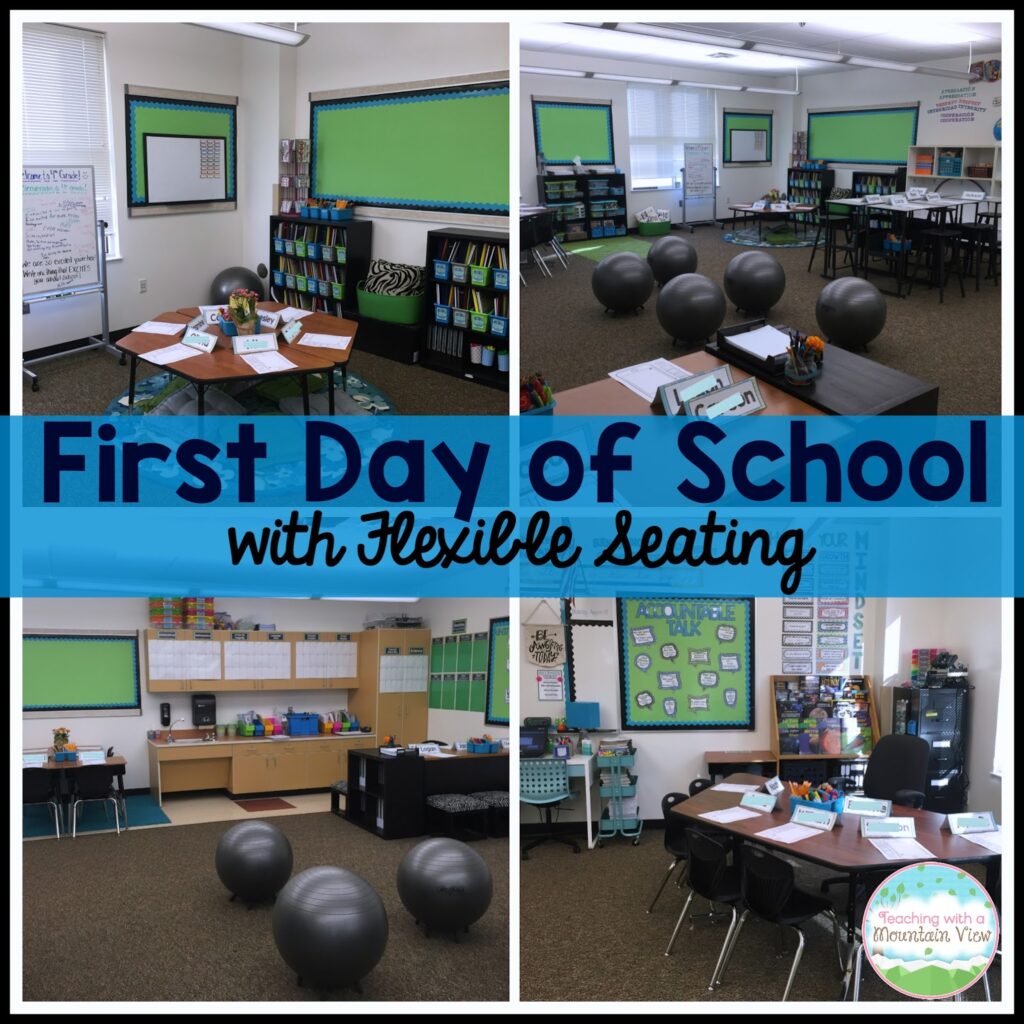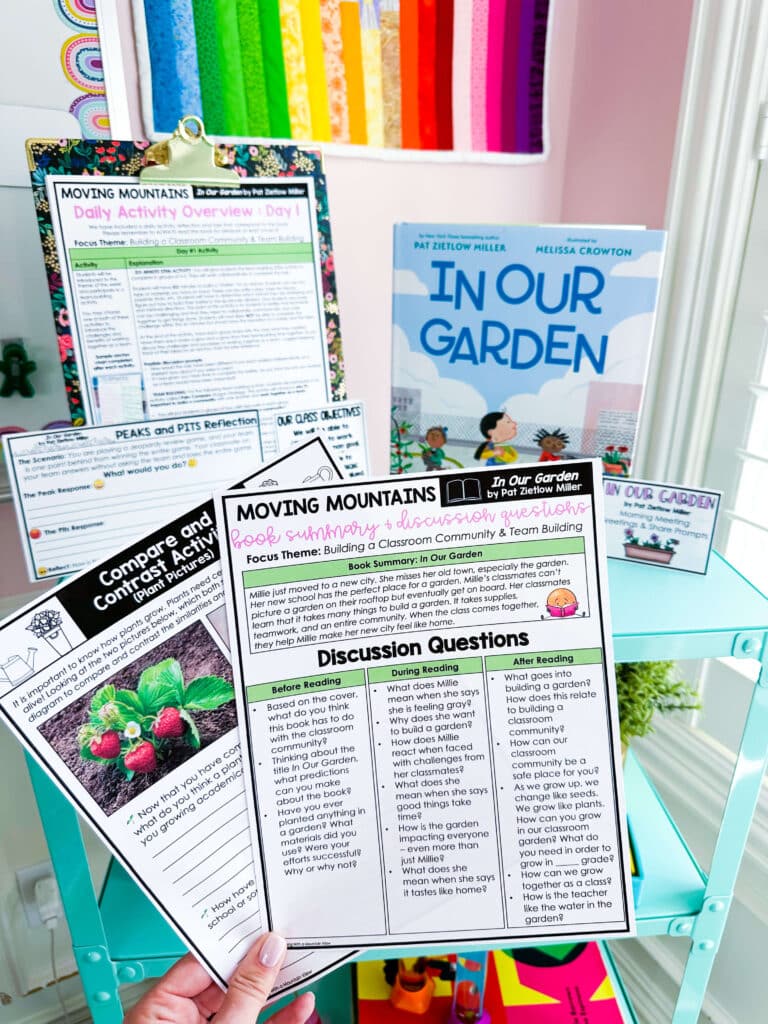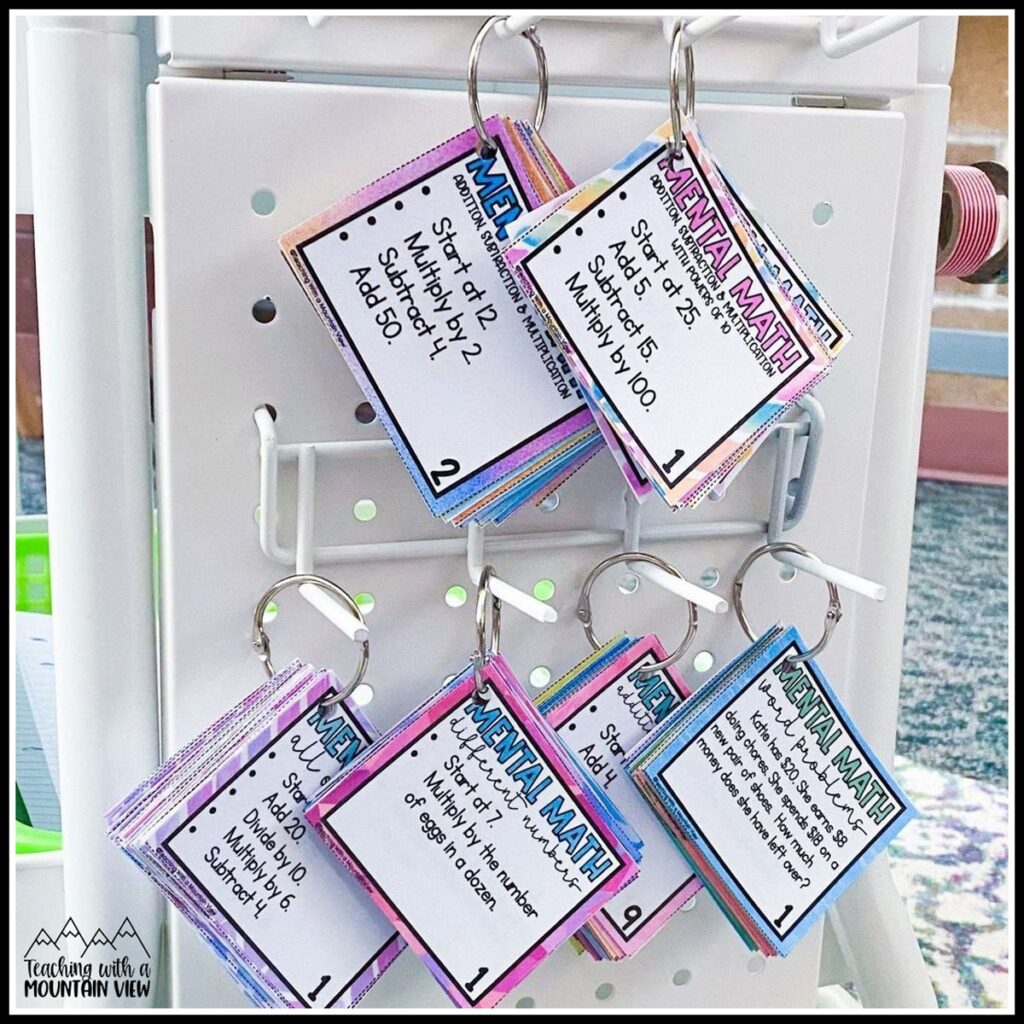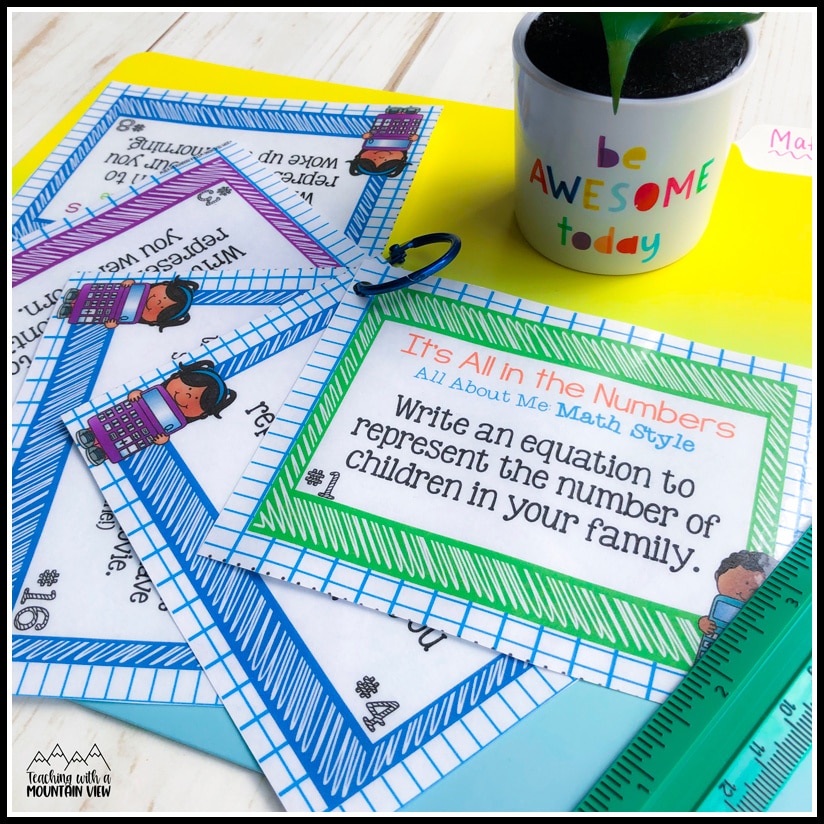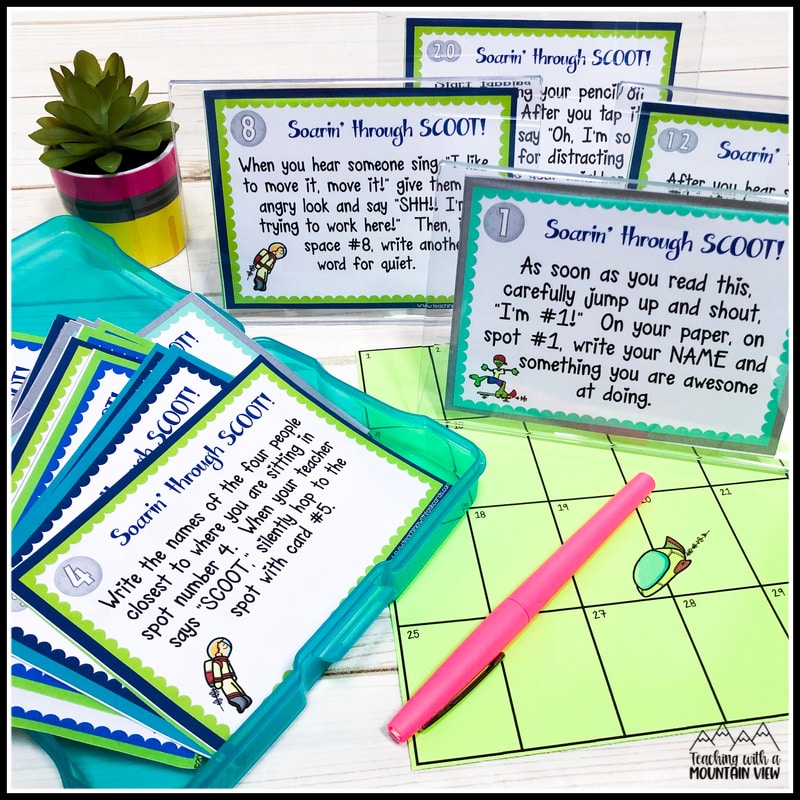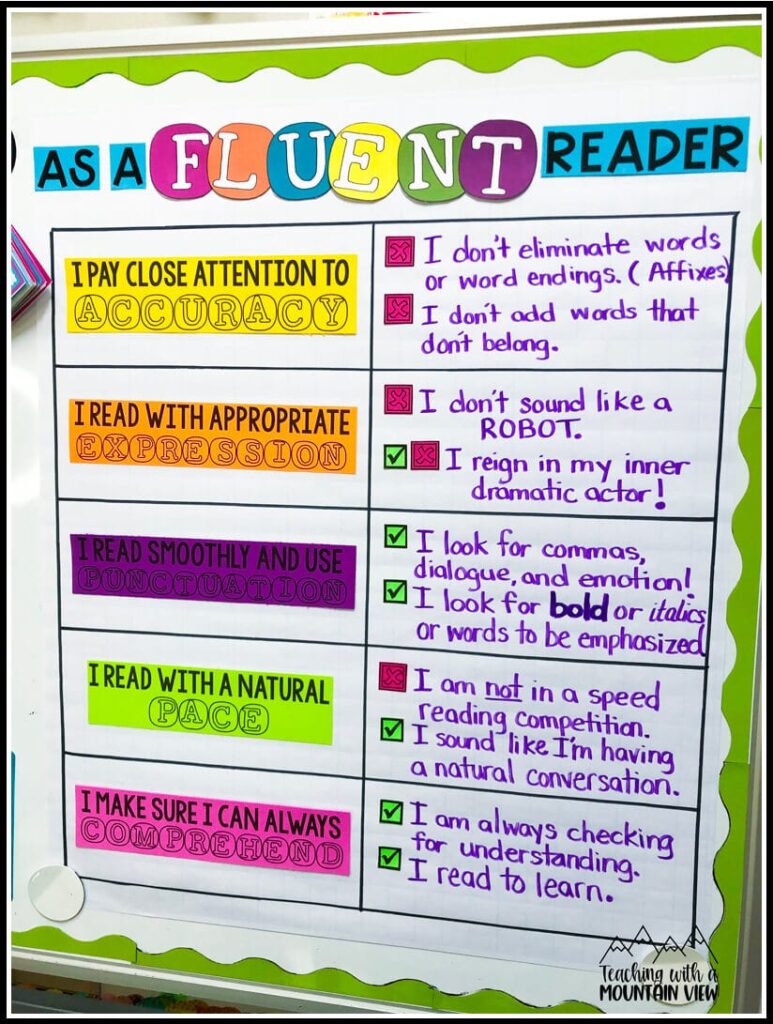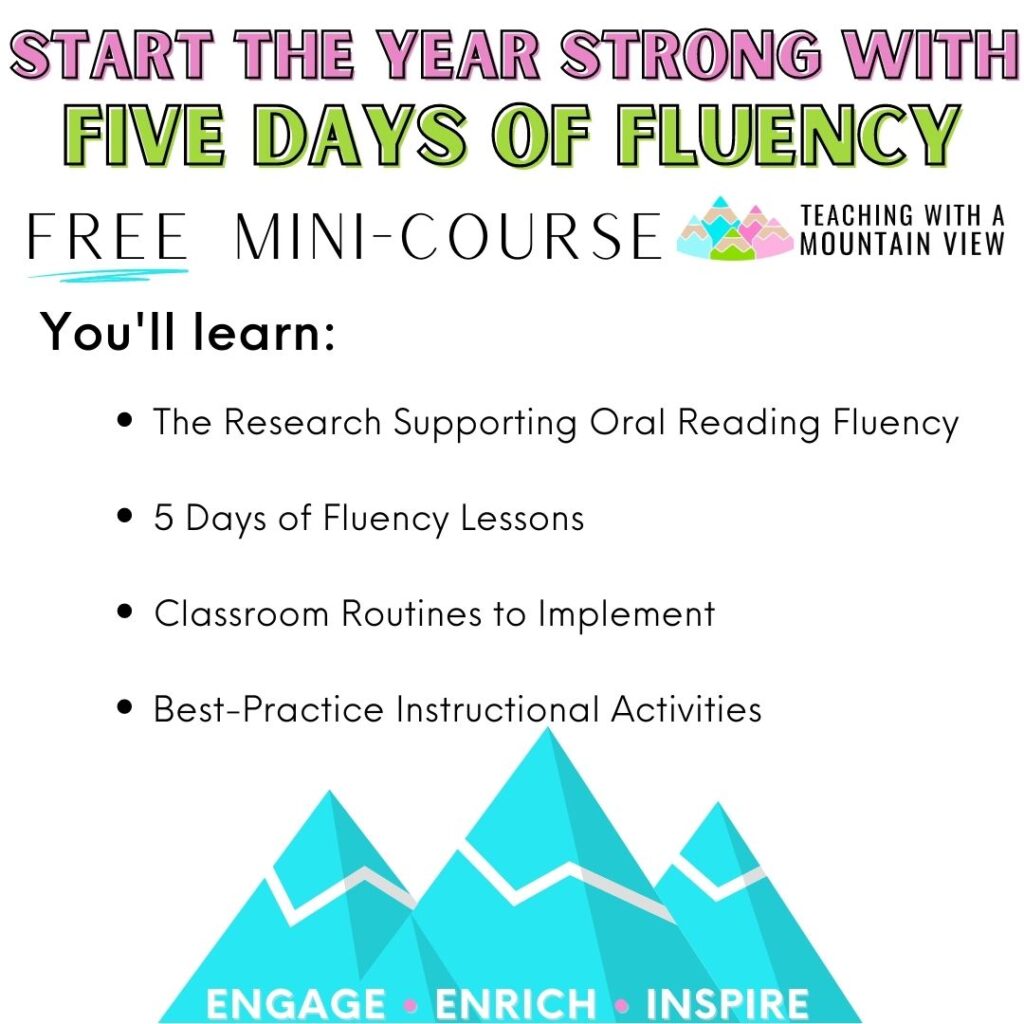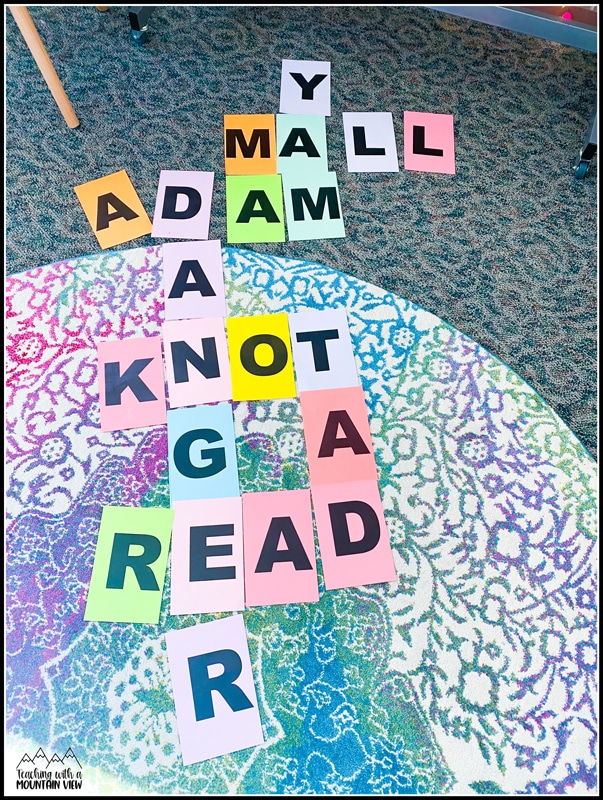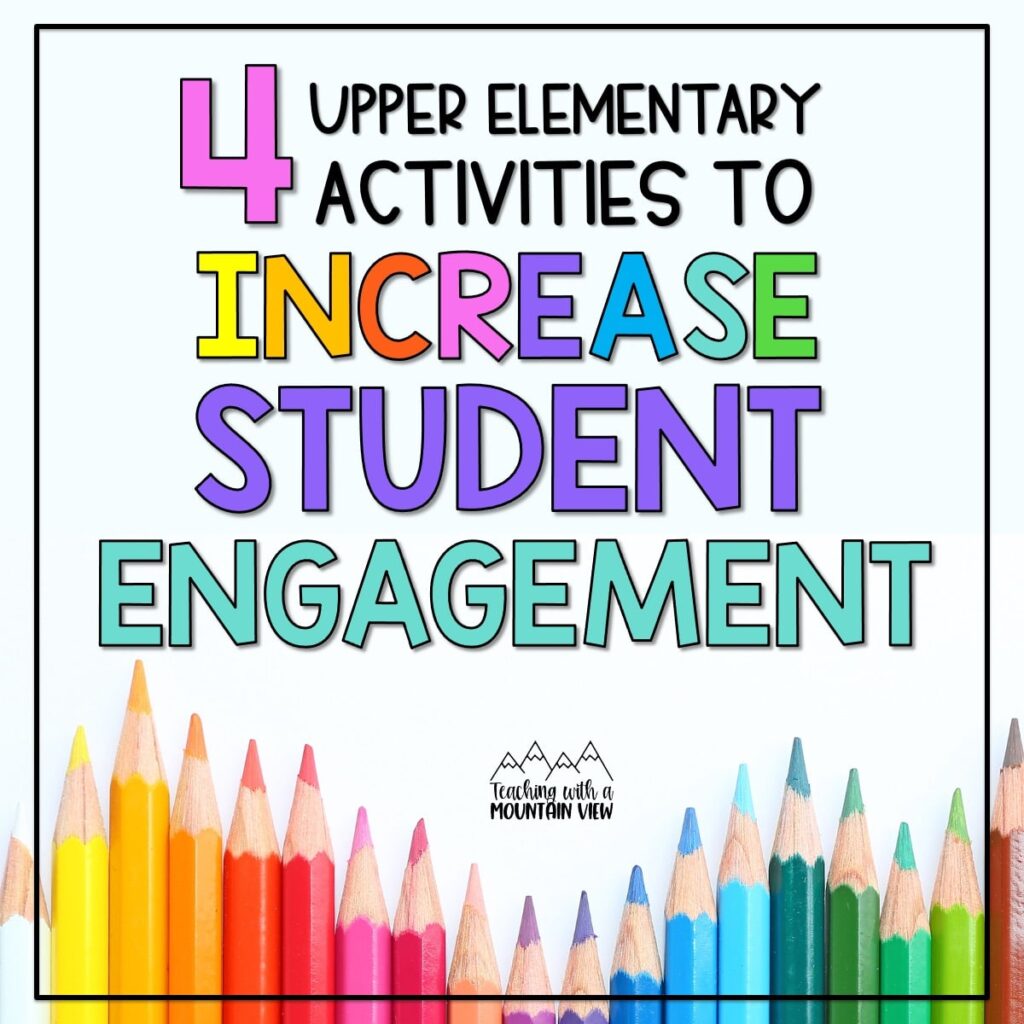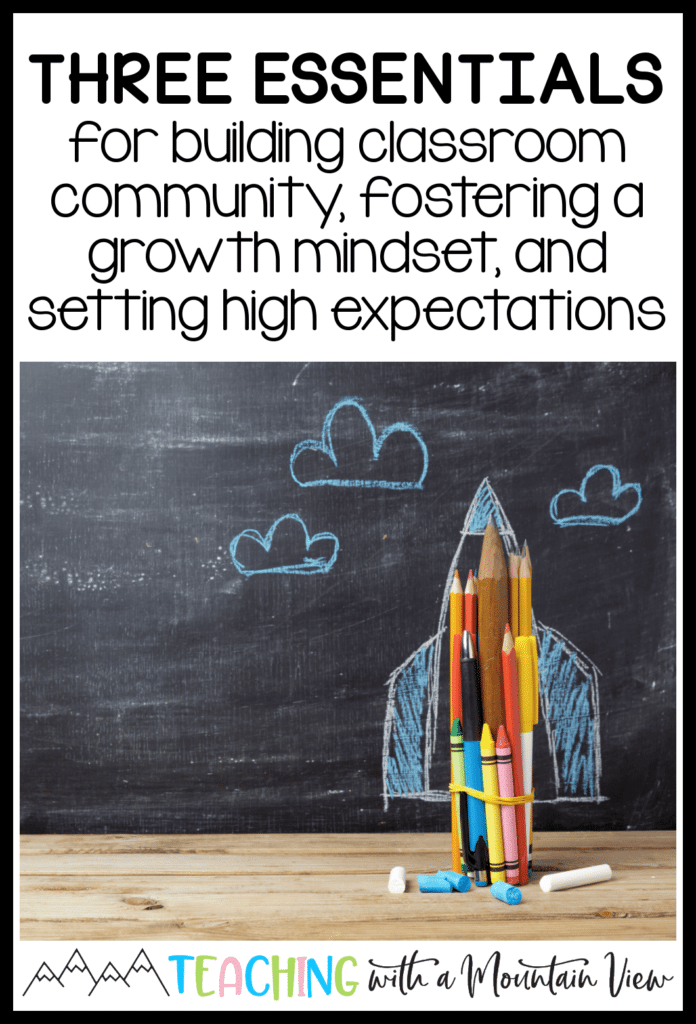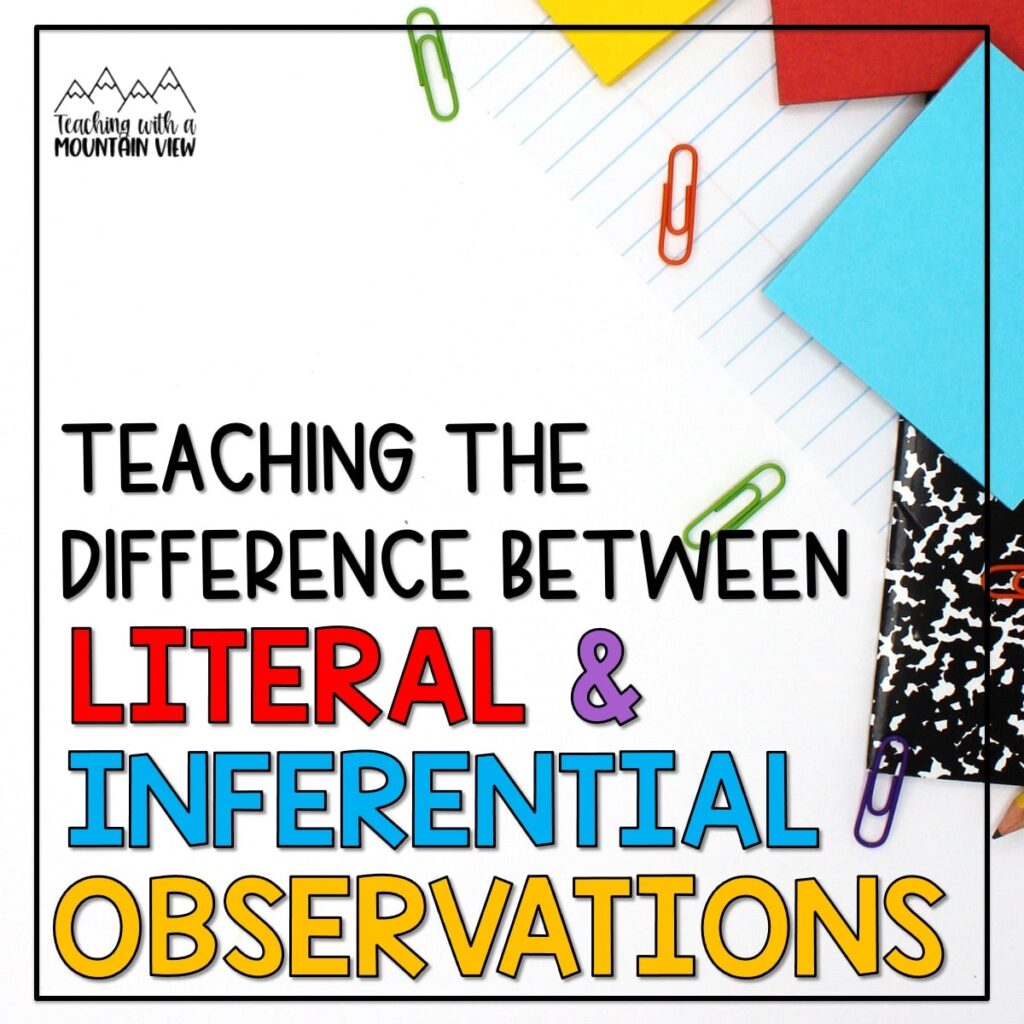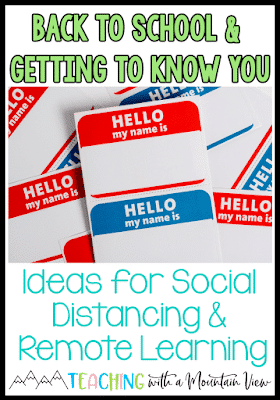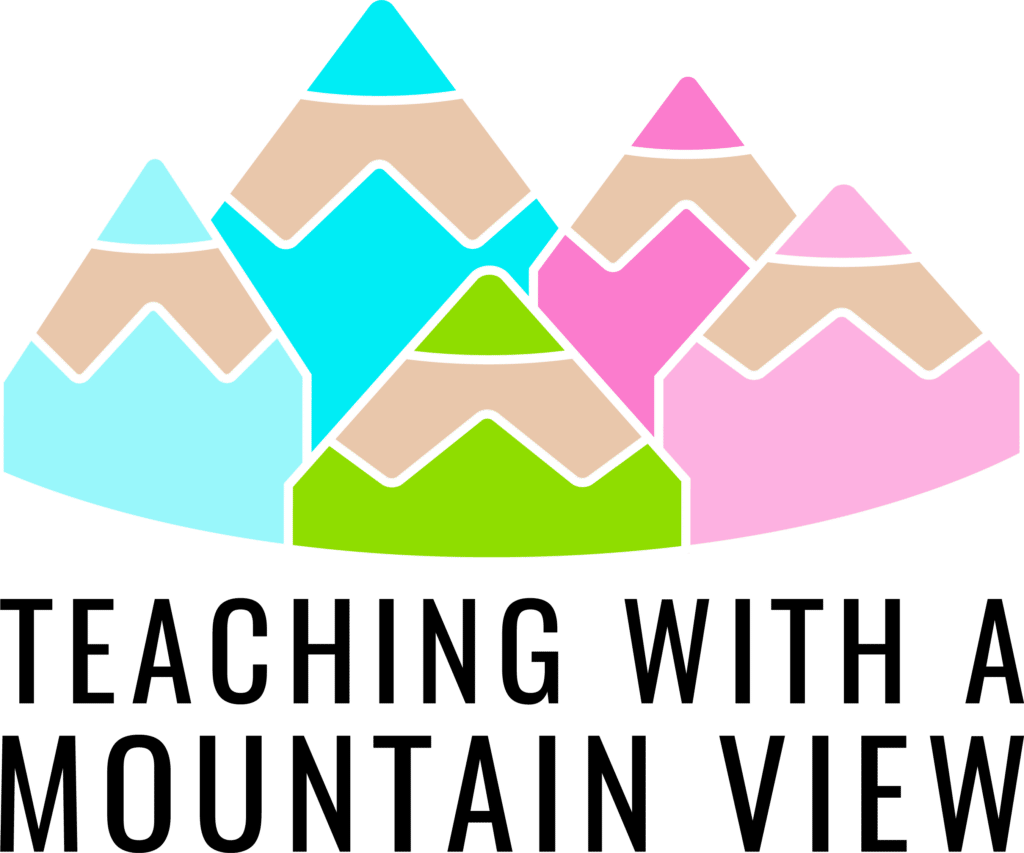What To Teach On The First Day of School: FREE First Day of School Lesson Plans
By Mary Montero
Share This Post:
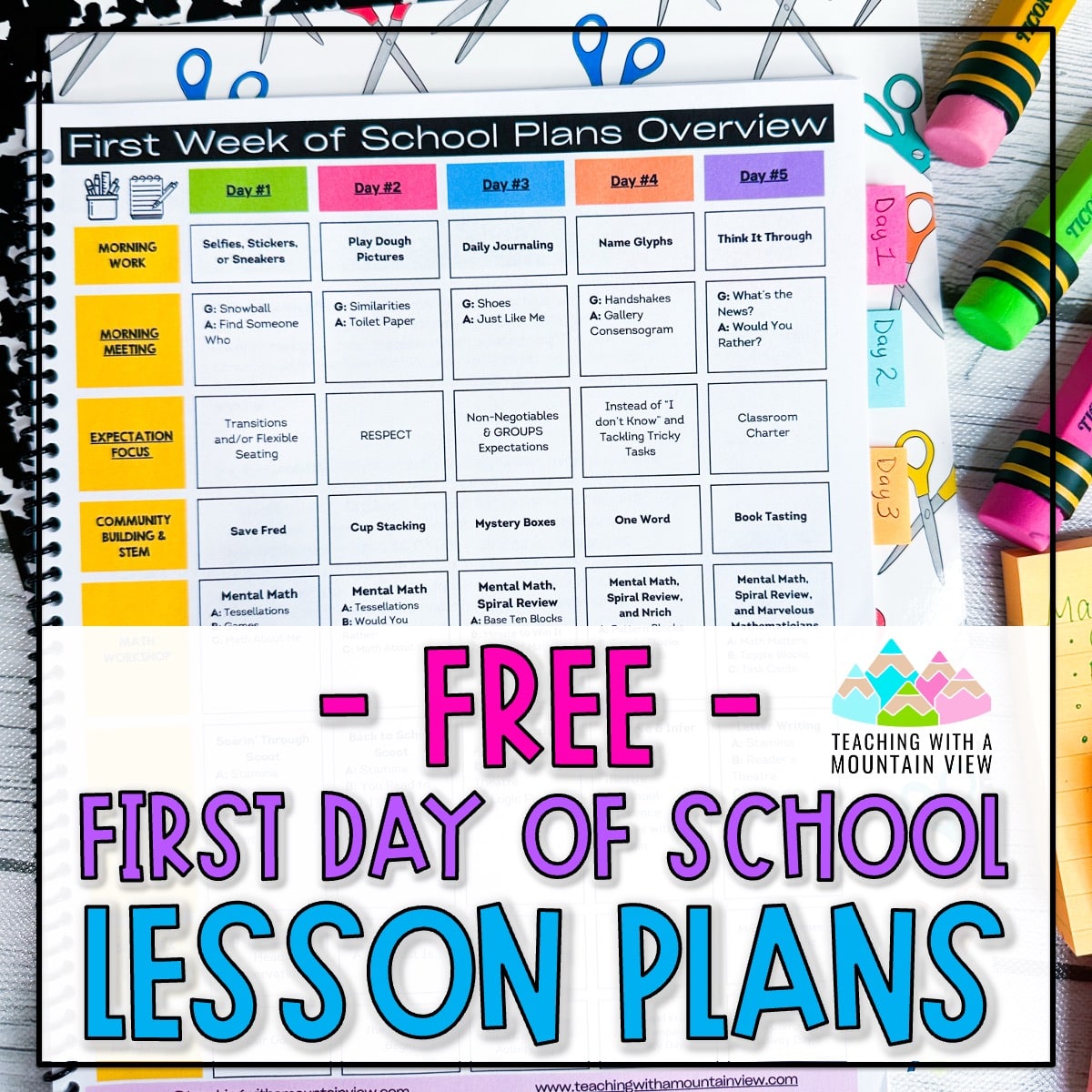
The first day of school is one of the most important days of the year. It sets the tone for the weeks (and months!) ahead, so having a smooth start is super important. As a mentor teacher, the biggest tip I give mentees is that they should absolutely put effort into planning their first week of school BEFORE spending extra time on their classrooms.
The first day of school is a unique opportunity to build relationships and begin creating the engaged, collaborative, and respectful community of learners we all strive for.
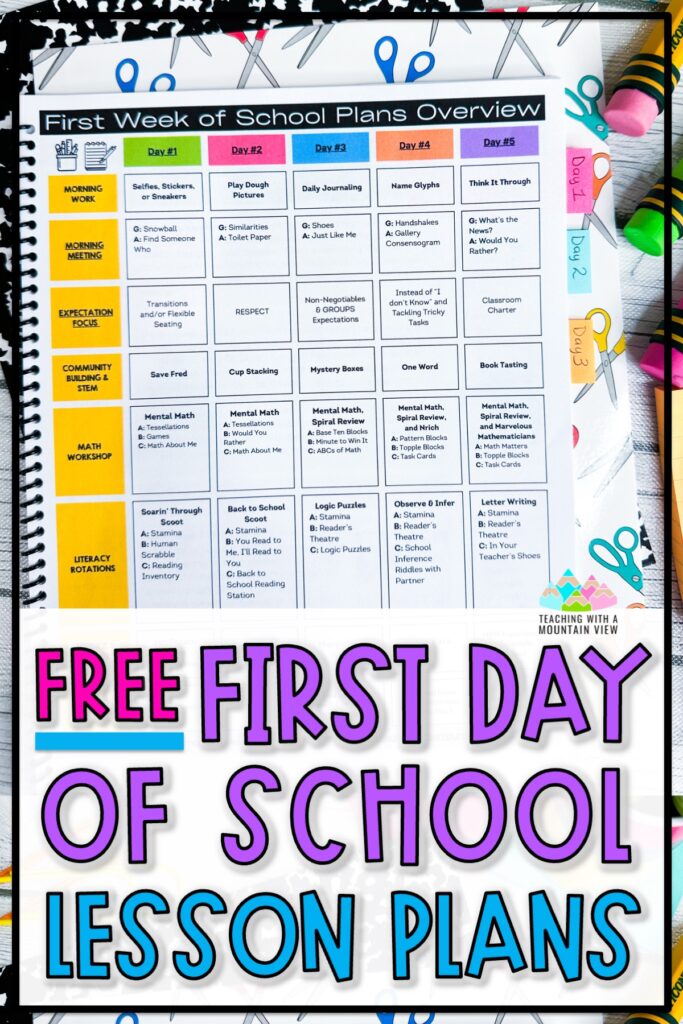
Whether you’re a brand-new teacher or an experienced teacher looking for new ideas, this post is full of practical tips and activities to help make your next first day of school the best one yet!
First Day of School Tips
After many first days of school over the years, here are my tried and true tips for a successful first day of school.
Consider the First Few Moments
I’ll never forget the first moments in my first classroom. I was paralyzed for what felt like an entire minute as all these children walked into my room and looked to ME (and only me) for what to do. I realized that even though I had meticulously planned all the activities and expectations for our first day, I hadn’t really thought through the first few MOMENTS with my students! Make sure you take a moment to think through those VERY FIRST FEW MINUTES. As they come into the classroom, what should they do (and how will they know to do it?) with all their stuff? What will you say to them after you greet them? It’s the little things! 🙂
Plan Big, But Allow Flexibility
I always recommend starting the first day of school with a solid plan, but even the best lesson plans still need a little wiggle room. Students won’t know your routines yet, so transitions will likely take longer than you think, questions will pop up when you least expect, supplies will take longer to put away, etc.
So while it’s great to go in with detailed schedules and plans, be ready to adjust as you go. What’s most important is laying a strong foundation for classroom expectations and routines throughout the year.
That being said, it’s also important to energize your students for the year ahead – don’t get SO bogged down in the routines and expectations that it’s all they do the first day of school. Just like with academics, the best way for kids to learn expectations and routines is through authentic activities in the classroom!
Set Expectations Early
Speaking of expectations, take time to clearly explain and practice expectations before jumping into your first (authentic) activity. As you’re planning your activities, decide which expectations you’ll be teaching with each activity. Practice how students will move throughout the room, what active listening looks like, how transitions will work, etc. Practice, practice, and practice again!
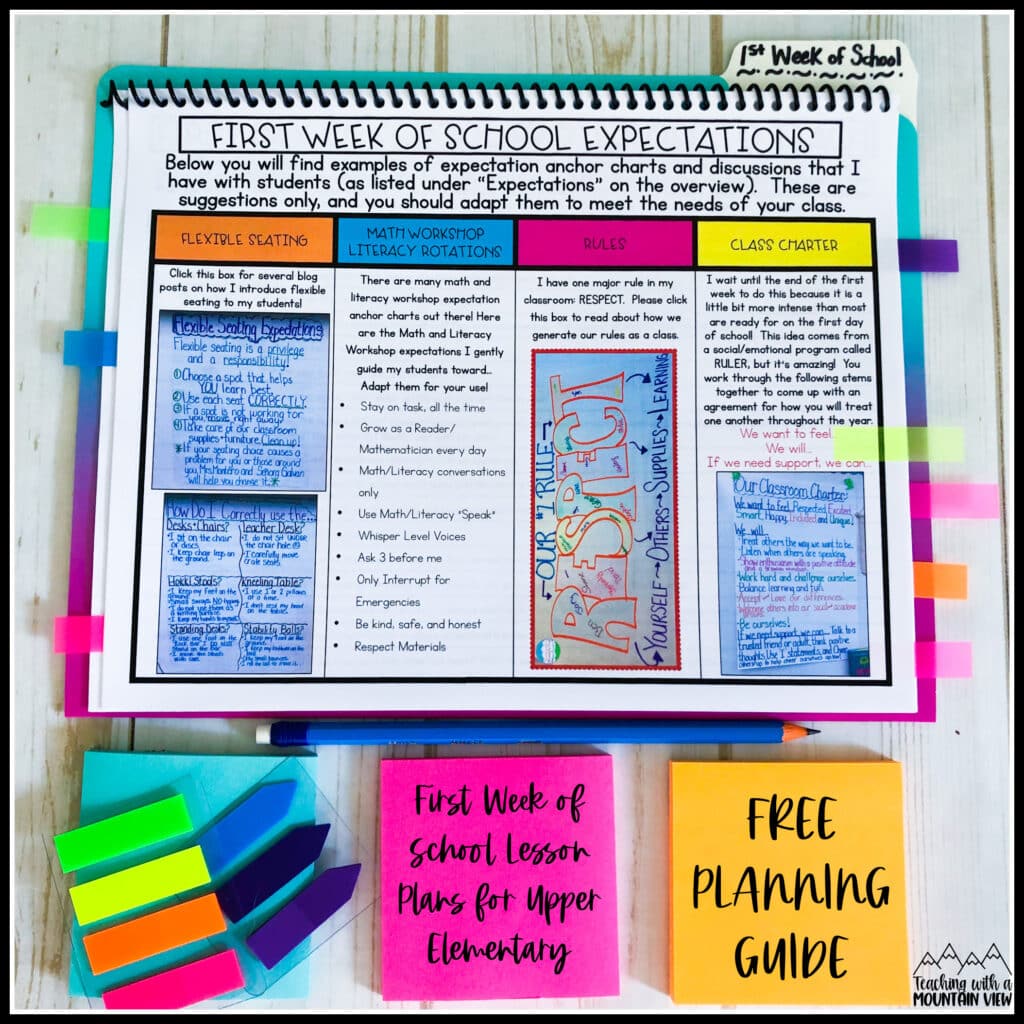
Make expectations interactive. For example, practice how students should move in line or move between learning activities. Slowing down now will allow you to speed up later. A principal of mine’s favorite phrase was, “Go slow to go fast!”
Again, these are all covered in the FREE first week of school lesson plans!
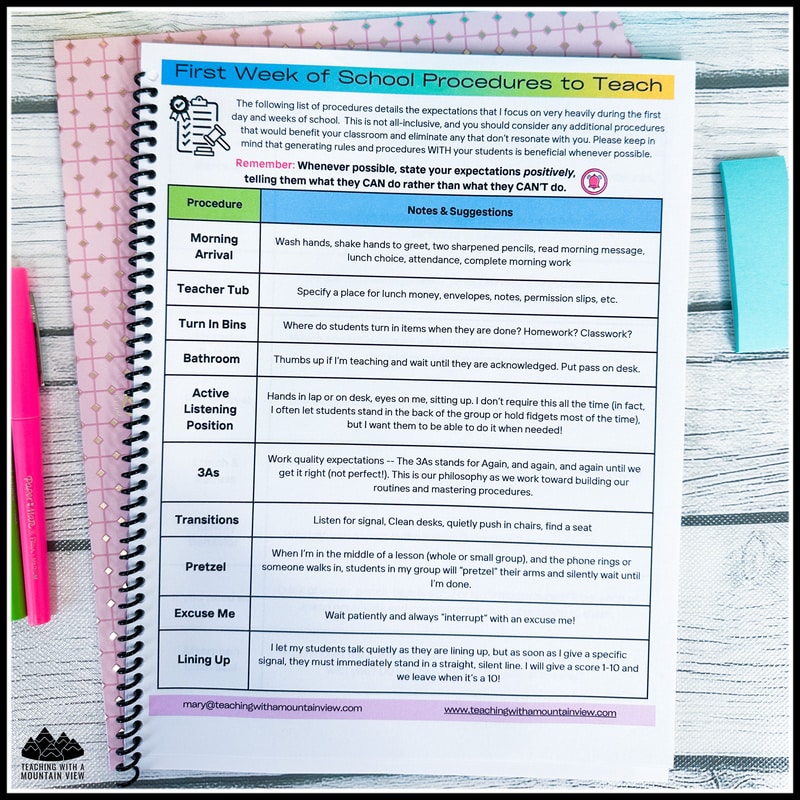
Build Relationships First
The heart of every successful classroom is the relationships among its people. These ARE your people for the next 9 months! On the first day of school, prioritize getting to know your students, allowing students to get to know you, and helping students get to know each other. Activities should focus on building connections, shared interests, and a team-like atmosphere.
These posts can help you build community!
- Three Must-Dos for Building Community and Setting Expectations
- Incorporating Classroom Traditions to Build Community
- Using Picture Books to Build Relationships
Start Academics Right Away
This is a big one! You should absolutely introduce a few academic tasks (remember those authentic activities) on day one! This helps set the expectation that your classroom is a space for learning and growth. You don’t have to do a deep dive into your curriculum yet, though. Keep all tasks accessible and engaging – think of tasks with a low floor and high ceiling here or consider some critical thinking tasks! Think of the first day of school as just a small preview of the classroom’s rhythm.
Limit (or completely eliminate) Technology
Finally, technology will likely play a big role in your classroom, but that doesn’t mean you need to introduce it on the first day. Spend the first day of school focusing on human interactions and building relationships away from screens. There are SO many things that can go wrong getting tiny humans onto devices, and the stress it causes is NOT worth it on the first day of school.
What To Teach on the First Day of School
These first day of school activities can help you practice expectations and build initial rapport in the classroom.
Morning Work Art
Lay out a selection of templates on each student’s desk. They can choose from a cell phone selfie, designing water bottle stickers that represent them, or designing their own Converse-style Sneakers. This will allow you time to help students get things put away and settle in. I have included these templates FREE in the complete first week of school lesson plans download.
Morning Meeting
Snowball GREETING: Each child writes their name on a piece of paper, crumples it up, and throws it into the middle of the circle. Each child takes a turn grabbing a snowball from the middle and shaking hands or high-fiving their newfound friend.
Find Someone Who ACTIVITY: I use Find Someone Who activities multiple times throughout the year, and it’s a great way to get kids up and moving! Be sure they know to greet one another with eye contact and a fist bump or handshake.
SHARE: Use three words to describe your summer. Think about questions you can ask peers later based on their words!
Expectations
Here’s your chance to practice a key expectation! I recommend focusing on transitions and/or flexible seating, if applicable to your classroom.
When I first introduce the concept of transitions, we practice several key transitions over and over. This is one of those situations where you need to go slow now to go faster later, so don’t skip practice!
After students know the expectations for transitioning (after a few days), I have a student timekeeper time how long each transition takes… there is something SO motivating to them about trying to beat their time, and I love saving all those precious minutes of instruction!
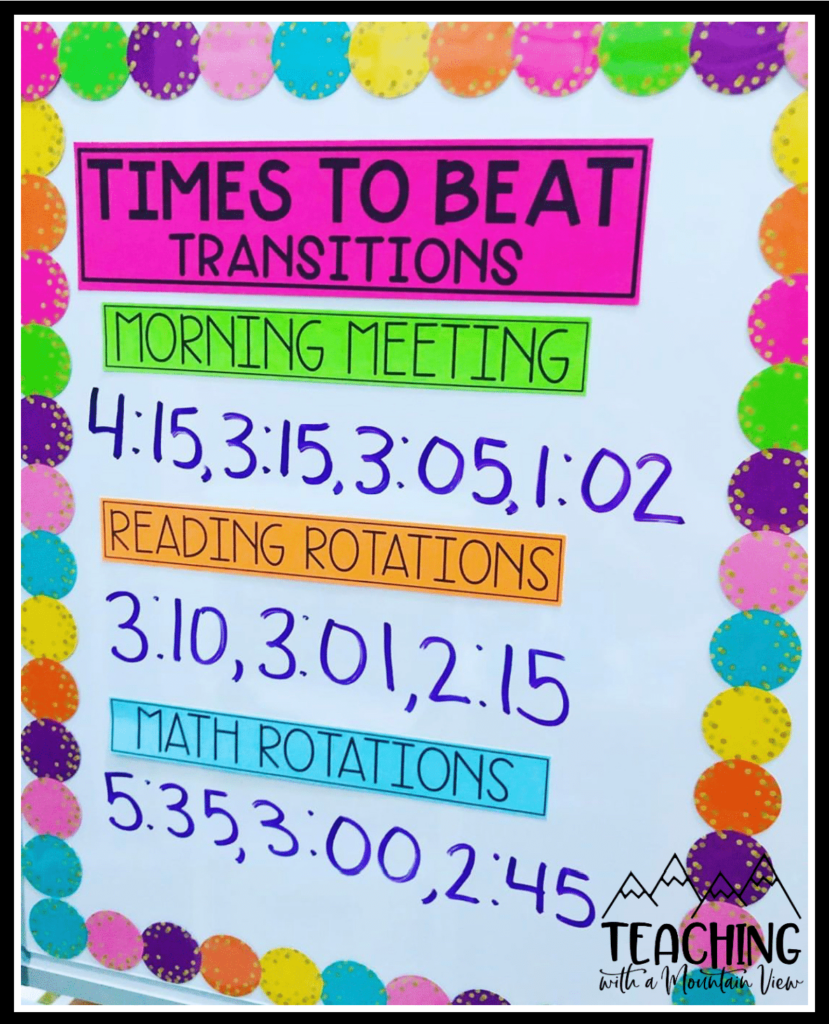
If you use flexible seating in the classroom, this post has tips for managing flexible seating on the first day of school.
Community Building and STEM: Save Fred
This is a classic teamwork activity! Students will work together to save Fred the gummy worm from impending doom. I have included free directions and reflections in, this document. To set it up, place a cup upside down with a lifesaver gummy inside. Place Fred on top.
Read Aloud: In Our Garden
I begin our first week of Moving Mountains by reading In Our Garden. While we will spend some time focusing on activities related to this book throughout the week, I will also feature other first-week read-alouds throughout the week.
Math Workshop
If you are planning to run a math workshop, I LOVE to start it on day one! If not, these are still great activities for the first day.
Whole Class Mental Math: We start our mental math task cards from day one! I use the easiest sets first so that it is non-threatening and simply gets them thinking about math and into the routine. This is a great time to introduce student dry erase boards and the expectations that you have for their use.
Group A Tesselations: Have your students use an index card to create their very own tessellation. I have students use a large piece of construction paper to create their tessellation, then I laminate them and hang them up outside the classroom. I place a binder clip on each page and use it as a background to hang up their work all year long. I have included pictures of our tessellations and instructions for FREE in the complete first week of school lesson plans download.
Group B Games: When I say games, I literally mean board games! I use a lot of games in my classroom to accompany other tasks, so teaching them how to play games with partners is crucial. I use Trouble, Connect 4, Battleship, Candy Land, and Chutes and Ladders (YES! Even for the big kids). Be sure to go over game-playing expectations first!
Group C Math About Me: I use this FREE Math About Me resource every year! I have students use the last recording sheet and write their answers in the box, then cover the answer with a small sticky note and write the equation on it. This is always the first piece of work I hang on their tessellations!
Literacy Rotations
Whole Class Soarin’ Through Scoot: I created this SCOOT freebie MANY years ago to help my students learn how to play SCOOT! It’s a little silly, but it’s a fun way to show students how to rotate throughout the tasks and gets them up and moving and comfortable in the classroom.
Fluency Lesson Day #1: I am incredibly passionate about explicitly teaching oral reading fluency in the upper elementary classroom! I compiled my first week of school lessons for teaching fluency in this blog post. You can access the task cards for free as well. You can start it on day one, or wait a few days!
I have also created an entire FREE fluency course, walking you through setting up your fluency routines.
Group A Build Independent Stamina: I always, always, always include this in my first week plans. This is literally just kids enjoying reading quality picture books (which I choose) independently and building the stamina to sit in one place and read by themselves for 10-15 minutes. During the following weeks, we track our stamina as a whole group, but for this week, it’s just setting the foundation for that process.
Group B Human-Sized Scrabble: I give students a quick overview of how to play Scrabble, and then students work together to build their own Scrabble board using large letters. This is the station I monitor most closely so that they know how to play.
Group C Reading Inventory: I use this free reading inventory and really enjoy reading my students’ reflections. I have them do this inventory early on in the week so that I can walk around and chat with kids about their responses during rotations the rest of the week.
Science and Social Studies
Mr. Potato Head Observations: What’s the number one job of an excellent scientist? To make great observations! This is always the first journal entry in their science notebooks because it constantly reminds them of how important good, specific observations are. For this activity, you’ll need to collect a variety of Mr. Potato Head bodies and pieces. I have asked for donations, gone to Goodwill, and had other teachers bring in their collections. Then, I make the funniest combinations I can (or have the students make them) and instruct students to choose one and draw it, with as much detail as possible. Then they label their drawings with SPECIFIC observations and find similarities and differences between their chosen potato and the rest of the potatoes. Learn more in this 4 Easy Activities to Increase Student Engagement post.
Free Download: Full First Week of School Lesson Plans
I hope this post has helped you plan your first day of school! Remember, the first day of school is less about completing a rigid to-do list and more about building a strong foundation for the year ahead. When you focus on establishing expectations, building relationships, and setting a positive tone for learning, your students will thrive!
For even more help beyond the first day of school, you can download my FREE complete first week of school lesson plans for upper elementary here. Not only will you have free first day of school lesson plans, but also plans for the whole week!
I also have more helpful back-to-school blog posts to help you start the year off on the right foot. Read them here!
Mary Montero
I’m so glad you are here. I’m a current gifted and talented teacher in a small town in Colorado, and I’ve been in education since 2009. My passion (other than my family and cookies) is for making teachers’ lives easier and classrooms more engaging.

